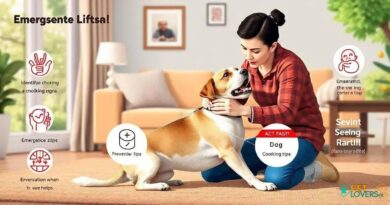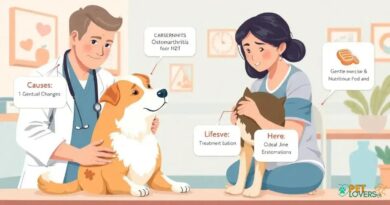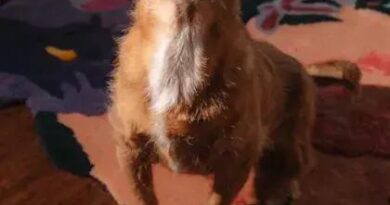What is: Boils in dogs
What are Boils in Dogs?
Boils in dogs, also known as furunculosis, are painful, pus-filled bumps that form under the skin. These skin infections occur when hair follicles become inflamed and infected, often due to bacteria. Boils can appear anywhere on a dog’s body but are most common in areas where there is friction, such as the armpits and groin. Understanding what causes these boils is crucial for effective treatment and prevention.
Causes of Boils in Dogs
The primary cause of boils in dogs is bacterial infection, typically from Staphylococcus bacteria. Other contributing factors include allergies, poor hygiene, and underlying health issues that compromise the immune system. Dogs with skin conditions, such as dermatitis, are more susceptible to developing boils. Additionally, any trauma to the skin, such as bites or scratches, can introduce bacteria and lead to infection.
Symptoms of Boils in Dogs
Symptoms of boils in dogs can vary, but common signs include swelling, redness, and tenderness around the affected area. Dogs may also exhibit signs of discomfort, such as whining or reluctance to be touched. In some cases, the boil may rupture, releasing pus and causing further irritation. It’s essential for pet owners to monitor their dogs for these symptoms to seek timely veterinary care.
Diagnosis of Boils in Dogs
To diagnose boils in dogs, veterinarians typically perform a physical examination and may take a sample of the pus for laboratory analysis. This helps determine the specific bacteria causing the infection and guides appropriate treatment. In some cases, additional tests may be necessary to rule out underlying health issues or other skin conditions that could mimic boils.
Treatment Options for Boils in Dogs
Treatment for boils in dogs often involves draining the pus and cleaning the affected area. Veterinarians may prescribe antibiotics to combat the bacterial infection and anti-inflammatory medications to reduce pain and swelling. In more severe cases, surgical intervention may be required to remove the boil completely. It’s crucial for pet owners to follow their veterinarian’s instructions closely to ensure proper healing.
Home Care for Dogs with Boils
Home care for dogs with boils includes keeping the affected area clean and dry. Pet owners should avoid squeezing or popping the boil, as this can worsen the infection. Applying warm compresses can help soothe the area and promote drainage. Additionally, ensuring that the dog is on a balanced diet and has a healthy lifestyle can support the immune system and aid recovery.
Preventing Boils in Dogs
Preventing boils in dogs involves maintaining good hygiene and regular grooming. Bathing your dog with appropriate shampoos can help reduce the risk of skin infections. Regularly checking for any signs of skin irritation or injury is also essential. Keeping your dog’s living environment clean and free from parasites can further minimize the chances of developing boils.
When to See a Veterinarian
Pet owners should seek veterinary care if they notice any signs of boils in their dogs, especially if the condition worsens or does not improve with home care. Additionally, if a dog shows signs of fever, lethargy, or loss of appetite, these could indicate a more serious infection requiring immediate medical attention. Early intervention is key to preventing complications.
Common Misconceptions about Boils in Dogs
Many pet owners mistakenly believe that boils are a normal part of aging in dogs or that they can be treated effectively with over-the-counter remedies. However, boils are a sign of infection and should be treated by a veterinarian. Understanding the nature of boils and their causes can help pet owners take appropriate action and ensure their dogs receive the best care possible.




